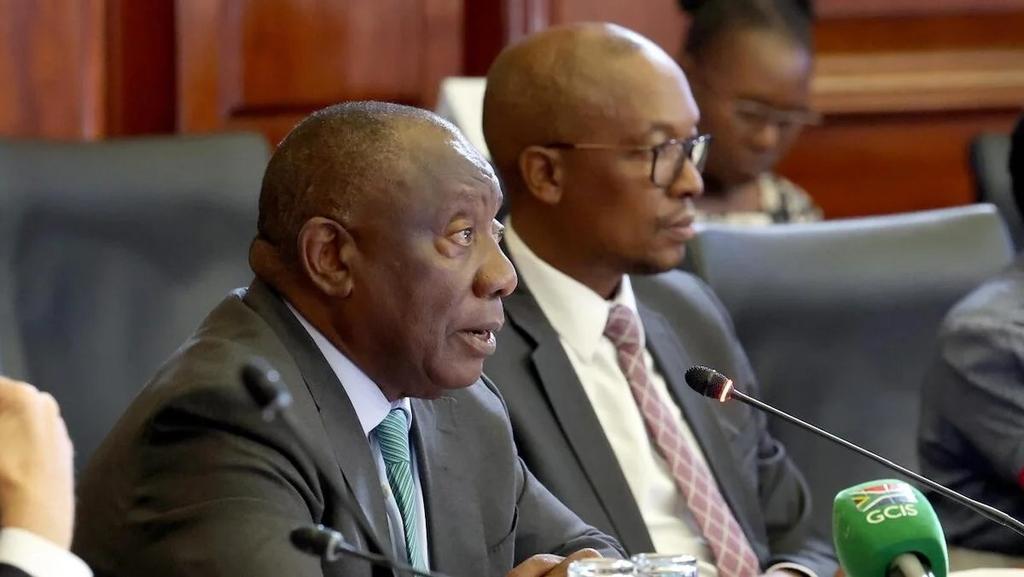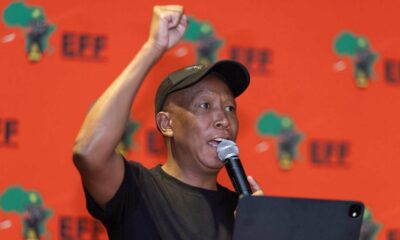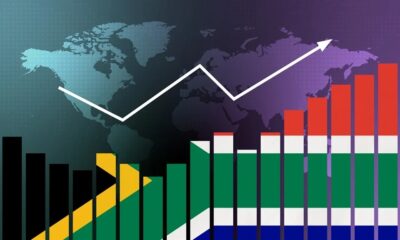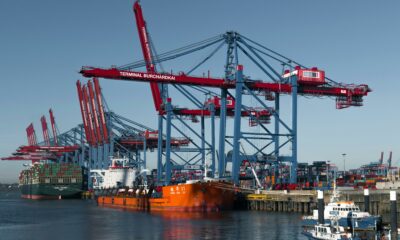News
R5 Trillion Lost, 4 Million Jobs Gone: Is South Africa’s BEE Policy Failing the People?

A new report says Black Economic Empowerment has become a highway for elite enrichment, while ordinary South Africans are stuck in poverty and joblessness.
For nearly 30 years, Black Economic Empowerment (BEE) was held up as a cornerstone of South Africa’s transformation agenda — a tool meant to redress apartheid-era injustices and open up opportunities for the historically excluded. But a new study released by the Free Market Foundation (FMF) and Solidarity Research Institute (SRI) paints a very different picture.
According to the research, BEE hasn’t just fallen short, it’s become an economic burden. The report estimates the policy has cost South Africa a staggering R5 trillion in lost GDP and destroyed 4 million job opportunities over the last two decades.
A Policy That Enriches the Few, Hurts the Many
Senior FMF associate and report co-author, Morné Malan, didn’t mince words: “BEE, as currently designed, is enriching a small elite while throttling economic dynamism and deepening unemployment.”
Malan believes the system has become “economically unsustainable” and out of touch with the very grassroots it was supposed to uplift.
The numbers are jarring. The report suggests BEE drags GDP growth down by 2–4% every year, amounting to a loss of up to 192,000 job opportunities annually. In a country battling unemployment rates above 32%, that’s not just policy failure, it’s national self-sabotage.
South Africa’s Missed Growth Decade
These findings echo other warnings. Investment strategist Osagyefo Mazwai from Investec Wealth & Investment International says South Africa has suffered through 15 years of lost growth.
“If we had grown at 4.5% per year, like other emerging markets our GDP would have been near R12 trillion by 2024,” Mazwai explains. “Instead, we’re sitting at R7.5 trillion.”
That’s a gap of R4.5 trillion, and for the average South African, it means life is worse than it was in 2010. Jobs are scarcer, food prices are rising, and families are falling further behind.
Mazwai points to a fundamental issue: economic policy has failed to lift people out of poverty or close the income gap. “Growth of 1% will not fix inequality,” he says. “We need inclusive, opportunity-based reform — not elite enrichment.”
The BEE Billionaire Club
One of the most damning insights comes from Professor William Gumede of Wits University’s School of Governance. Gumede, who was once asked by government to assess BEE’s impact, says the truth is clear: the same politically connected individuals have been empowered and re-empowered since 1994.
“Conservatively, R1 trillion has been moved between fewer than 100 people,” Gumede said. “Meanwhile, real entrepreneurs with no political connections can’t get a foot in the door.”
Instead of uplifting millions, BEE has created a “contract culture,” where companies are set up not to build sustainable businesses, but to secure tenders through connections. Gumede argues that the system has become a breeding ground for corruption and exclusion.
He envisions a more effective alternative — one where the same R1 trillion could have funded housing, schools, and education for millions. “Tata in India and Mitsubishi in Japan did this. They empowered entire generations,” he notes.
Social Reaction: “It’s Time to Rethink Empowerment”
On social media, frustration is boiling over.
“BEE was never about us, it was always about them,” reads one viral post on X.
“Imagine how many jobs R5 trillion could have created if it wasn’t hoarded by the few,” said another user on Reddit.
Many South Africans, especially young professionals and entrepreneurs, say the system feels like an exclusive club they’ll never get into. Some are calling for race-neutral, merit-based policies focused on real inclusion and job creation, not tick-box compliance.
Where Do We Go From Here?
FMF’s Head of Policy, Martin van Staden, believes it’s time to ditch race-based redistribution in favour of economic freedom.
“There are better ways to build a prosperous economy,” he said. “We must stop treating empowerment as a trade-off between equity and efficiency. The truth is, we’ve sacrificed both.”
The call for reform isn’t new, but with unemployment at crisis levels and growth stagnating, the urgency is.
BEE was born out of a noble goal to uplift and empower black South Africans in the post-apartheid era. But after nearly three decades, the evidence is mounting: what was meant to liberate the many has become a tool for enriching the few.
With R5 trillion lost and millions left jobless, South Africa faces a hard truth and an even harder choice: cling to broken policies or reimagine empowerment for a generation that needs more than promises.
Why Ditching BEE Could Deepen South Africa’s Inequality Crisis
{Source: Daily Investor}
Follow Joburg ETC on Facebook, Twitter , TikTok and Instagram
For more News in Johannesburg, visit joburgetc.com



























